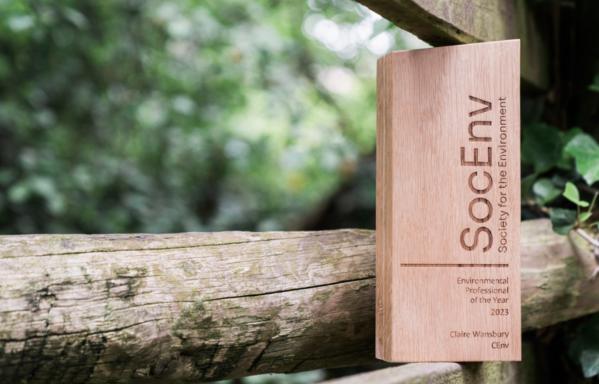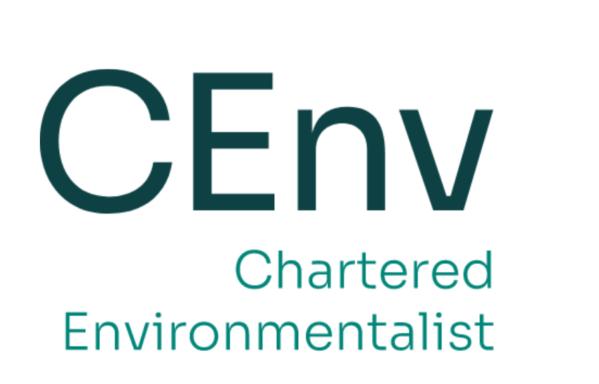
A new governance structure for the Foundation for Water Research (FWR) has been launched, as part of the efforts to refresh the mission of this vital body analysing and translating water research for different audiences.
The water sector is in flux in the UK and the revitalised FWR, which recently joined the IES family, has a critical role to play in ensuring that people have access to the latest water research in accessible formats.
Managing the mission
The work of the FWR will now be steered by the FWR Community, an innovative and independent-thinking community of water professionals offering guidance and strategic thought leadership for our work in the water sector. The Community will use an integrated, systems-thinking approach to water issues, with careful consideration of their interactions with other environmental disciplines such as land and air.
The FWR Community will be led by the FWR Committee, which will in turn be informed by three Technical Panels (Figure 1 attached). Given the broad nature of the water sector, these three Technical Panels will not only focus on issues that fall in their remit but will explore the areas of crossover between the panels as well as with other specialisms and disciplines. In recognition of the need for a joined-up approach to the issues facing the water sector, collaboration will be a fundamental aspect of the work of the Technical Panels and they will seek to engage with external organisations where appropriate.
The work of the FWR Community
The FWR will tackle issues facing the water sector, ranging from water quality to water resources management to freshwater environments and ecology. In recognition of the interconnectedness of the water sector with other environmental specialisms, it will collaborate with the other IES Communities to advocate for knowledge and approaches that utilise systems thinking for the benefit of people and nature.
The Community will provide thought leadership, best practice guidance and meta-analysis of research through dedicated activities, such as publications, events and policy work. It will also provide water professionals with an opportunity to play a leading role in shaping the water sector and connecting with fellow water and environmental professionals on topical issues.
Quotes
Share this page
I look forward to the developments in IES that the FWR Committee will create for the water sector. New and exciting topics within IES have been facilitated by the closure of FWR and its transfer of funds. FWR is delighted with the way that IES has embraced this opportunity to carry on the public information role of FWR into the future with refreshed energy. The outputs will include publications, webinars and discussion forums which will draw together a wide range of water issues with environmental matters in a more complete way than before. My role as Chair is for the interim, to help as the last Chair of the FWR, until a new Chair is selected
Eric Valentine
Interim FWR Committee Chair
There is an increased interest in using disruptive technologies for environmental monitoring. Such technologies enable us to collect vast amounts of data on-demand at a large spatial and temporal resolution. This is enabling us to better characterise and model our environment. We are expecting to increase our understanding of current environmental systems through enhanced data acquisition and processing. There is a need to think about our environment as a complex interaction of multiple components or systems that are closely interlinked. We require the knowledge of multiple environmental experts to better understand and characterise the interactions between these systems. Our Water Environment and Ecosystem Services Technical Panel will bring together a multidisciplinary team that will work together to tackle priorities for the water environment using systems thinking approaches.
Mónica Rivas Casado
Chair of the Water Environment and Ecosystem Services Technical Panel
“Water pollution has been hot on the agenda for at least a couple of years now but in truth there are a number of issues that face the water industry. As part of the Sustainable Wastewater Management Technical Panel we are going to look at all of these issues and many more from pollution to net zero and how we can achieve more holistic sustainable systems-based wastewater treatment, looking at everything from upstream thinking and source control to net zero, health and the water environment.”
Oliver Grievson
Chair of the Sustainable Wastwater Management Technical Panel
Water companies are facing increasing pressures on their water resources due to the impacts of climate change, population growth and increasing regulatory pressures associated with the impact of water abstraction on the natural environment. One of the key objectives of the Water Resources and Quality Technical Panel will be to explore the impact of these pressures both on sufficiency and quality of our water supplies and how proposed alternative sustainable water resource solutions, such as water reuse, can gain the acceptance of both the public and the regulators.
Mark Kerwick
Chair of the Water Resources and Quality Technical Panel
Get involved
Keep up to date with the work of the FWR Community by signing up to our free dedicated newsletter.
If you are a water professional and are interested in getting involved in the work of the FWR Community, contact Ethny Childs ([email protected]), Communities & Partnership Lead at the IES.
The Community will have a collaborative ethos and welcomes partnership with other organisations in the sector who are strategically aligned. If you are interested in partnering with the FWR Community, please get in touch ([email protected]).
More from SocEnv

2023 SocEnv Awards Winners Revealed!
Society for the Environment reveal the winners for both the Environmental Professional and Registrant Newcomer awards.


IES and EPUK’s new joint focus on the implementation of environmental policy
Introducing EPIC: the new Environmental Policy Implementation Community


Sign up for SocEnv newsletters
Receive the latest news from SocEnv and beyond - direct to your inbox.


IES registered their 1000th Chartered Environmentalist
IES reaches a registration milestone registering 1,000 members as Chartered Environmentalists.

